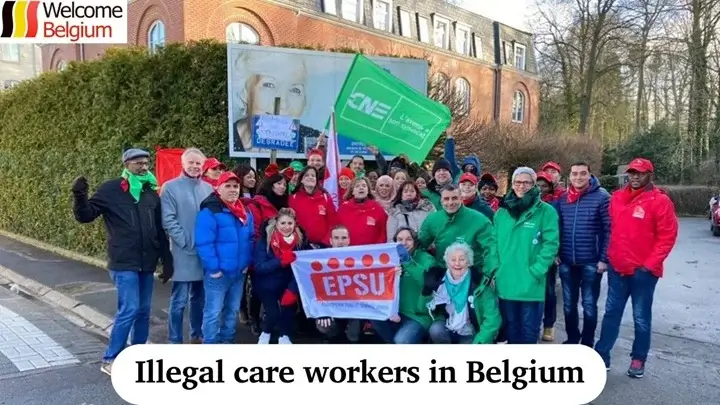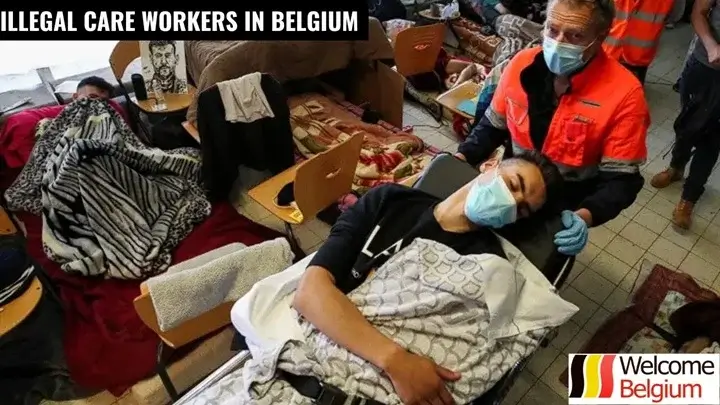Undocumented workers play a key role in Belgium’s care system, providing assistance to the elderly and other vulnerable groups. Despite their important contribution, their lack of formal status limits their rights and access to social benefits. Activists and human rights organisations are calling for regularisation to improve working conditions and recognise their importance to society.
The role of illegal workers in the Belgian care system
Undocumented care workers in Belgium are people who work without official work permits and are often in vulnerable situations. Despite their lack of legal status, they provide care to the elderly, disabled and other needy groups. These workers remain invisible in official statistics, but their work is crucial to the functioning of the country’s social system.
The role of illegal workers in the Belgian care system:
- Provides ongoing care for the elderly and disabled.
- Perform tasks that local residents often find unattractive or difficult.
- Participate in household chores, including cooking, cleaning, and assisting with personal hygiene.
- Often work in conditions of staff shortage in the care sector.
- They help relieve the burden on state social services, reducing the burden on the healthcare system.
- Help reduce costs for families in need of care.
- They work on a flexible schedule, adapting to the needs of clients.
- Provide support and social interaction for isolated populations.
As of 2024, there are around 150,000 undocumented workers in Belgium, many of whom are in the care sector. Precise statistics remain difficult to calculate due to their informal status, but experts confirm that without their work, the social security system would be seriously disrupted. Despite the importance of their contribution, their lack of status limits their rights and protection. The question of legalising such workers remains relevant and requires active discussion.
Difficulties and challenges for illegal workers
Undocumented care workers face multiple challenges, including lack of formal status, precarious working conditions, and limited access to basic rights. Their contribution to supporting the health system remains undervalued, while social isolation and fear of deportation add to stress. These challenges require a comprehensive approach aimed at protecting the rights of these workers.
Difficulties and challenges:
- Lack of official status, which deprives them of the right to legal employment and social guarantees.
- Low wages, which often do not correspond to the workload and living standards in Belgium.
- Lack of access to health insurance and other social services.
- Working hours without taking into account labor legislation and overtime.
- High risk of exploitation by unscrupulous employers.
- Fear of deportation, which makes it impossible to defend one’s rights through official channels.
- Social isolation due to language barrier and lack of integration into the local community.
- Lack of professional training and accessible educational programs for advanced training.
Addressing the problems of undocumented workers requires a concerted effort by government, human rights organizations, and civil society. Legalizing the status of such workers can ensure their rights, improve their working conditions, and help them integrate into society. It is also important to develop support programs, including access to training and health services. Raising awareness of the importance of their work will be a step toward creating a fairer system.
Prospects for solving the problem in 2025
In 2024, the Belgian government actively discussed the issue of undocumented workers in the care system. Leading political forces took initial steps, including setting up working groups and holding public hearings. Despite this, no comprehensive solution has yet been reached that would satisfy the interests of both workers and public authorities. However, the plans for 2025 offer hope for progress.
What measures are planned for 2025:
- Establishment of legalization programs. It is planned to introduce a program to provide temporary residence permits for workers already employed in the care sector.
- Simplification of labor legislation. Development of new procedures for simplified employment of foreign citizens.
- Increasing the level of control. Implementing new mechanisms to identify and prevent cases of exploitation of illegal workers.
- Increased funding for social programs. State funds will support both workers and employers to simplify the legalization process.
- Information campaigns. It is planned to actively inform workers about the possibilities of legalization and their rights.
- Cooperation with the EU. Belgium will strengthen coordination with European structures to address the issue of migrants and illegal employment.
Solving the problem of undocumented workers in the care system requires a balance between the interests of workers, the state and society. The measures planned for 2025 can significantly improve the situation, but much will depend on how effectively they are implemented. Legalizing these workers will not only ensure their social protection, but will also strengthen the country’s economy. It is important that all parties actively cooperate to achieve tangible results in the near future.





